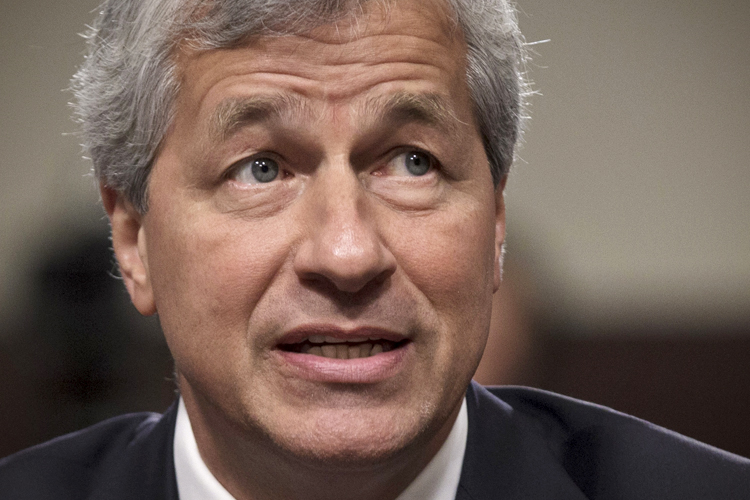The New York Times this morning highlights how Wall Street is gradually chipping away at the Dodd-Frank financial reform law of 2010, tacking deregulatory measures onto urgent legislation like last month’s massive government spending bill. This has reform advocates warning that Dodd-Frank faces “death by a thousand cuts,” in the words of Americans for Financial Reform policy director Marcus Stanley. But to hear JPMorgan Chase CEO Jamie Dimon tell it, Wall Street is going through a terrible patch.
“Banks are under assault,” Dimon declared in a conference call with reporters today, Reuters reports. “We have five or six regulators coming at us on every issue. It’s a hard thing to deal with,” the tormented soul lamented.
Dimon’s remarks came as JPMorgan reported a 6.6 percent fall in its quarterly profit amid mounting legal costs. In the fourth quarter of 2014, the bank’s legal fees totaled $1.1 billion, an increase from $847 million in the fourth quarter of 2013. For all of 2014, legal expenses amounted to $2.9 billion, which marked a decrease from 2013, when the bank was hit with a record $13 billion penalty for mortgage fraud.
In the conference call, Dimon also blasted federal rules that require banks to shore up capital reserves — part of regulators’ effort to avoid future taxpayer bailouts of troubled financial institutions.
“The regulators clearly want even more capital,” Dimon said. “We’ll meet those requirements. But those measures aren’t a measure of risk at all. It is simply a measure of size. This company is as sound as it gets.”
While Dimon rails against mean regulators in Washington, he has played a key role in scuttling the financial reform law he so loathes. Last month, Dimon personally called members of Congress to whip votes for a spending bill that funded most of the government through the end of the fiscal year; the measure contained a provision gutting Dodd-Frank’s regulation of risky financial instruments known as swaps.


